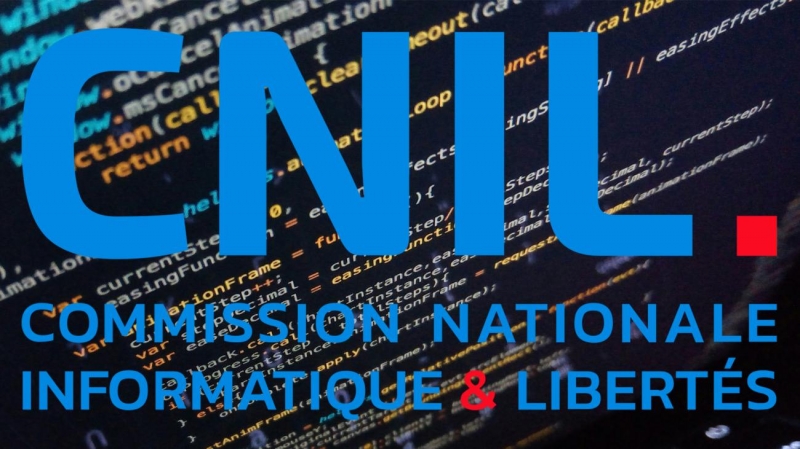
DR/France-Soir The cyberattack targeting Viamedis and Almerys as well as this formal notice from the CNIL demonstrate that the data of the French, as sensitive as they may be, are not safe.
WORLD –Are the digital data of French people sufficiently protected? Shortly after the large-scale cyberattack which targeted the two third-party payment operators, Viamedis and Almerys, at the end of January, the National Commission for Information Technology and Liberties (CNIL) announced that it had put health establishments on notice for their insufficient protection. and “inadequate” computerized patient records (DPI). The authority, which highlights the volume and, above all, the sensitivity of this data, recalled the security and confidentiality measures that health establishments must adhere to. This formal notice comes in a context marked by rampant digitization of sensitive documents and its corollary, an increase in cyberattacks.
At the end of January, the data of more than 33 million French people was leaked. Two successive cyberattacks targeted service providers Viamedis and Almerys, specialized in third-party payment management for many complementary health and mutual insurance companies. Compromised personal data is not the most sensitive, of course, but the loot from hackers is unprecedented. The victims concerned, almost half of the French population, saw their social security number or personal data such as their marital status hacked.
The health sector, easy prey ?
The information was revealed a week later by the CNIL, which stressed that at this stage of the investigation, banking or medical information does not appear to be affected by these two cyberattacks, which began with account phishing. of a health professional. However, the data recovered by hackers can lead to identity theft or phishing attempts. The Paris prosecutor's office immediately announced the opening of an investigation.
Health professionals were directly affected and one of them, Hugues Verdier-Davioud, president of the National Federation of Opticians of France (FNOF), claimed to have on numerous occasions alerted the CNIL to the failures linked to the security of personal and medical data. He also mentioned the collection, by complementary health insurance, of information that is not essential to their operation.
Coincidence? The commission confirmed this observation in a press release released on February 9, 2024. The CNIL puts several health establishments on notice. She wants them to take “measures to ensure the security of the computerized patient file”. Reacting to alerts about illegitimate access to patient data contained in DPI, the authority explains that it has carried out, between 2020 and 2024, 13 checks on health establishments, not identified in the press release. /p>
THE CNIL points to a worrying complacency which these establishments must put an end to and lists the measures to be taken before the end of this year.
The digital driving license before the dematerialized euro?
It is, essentially, the establishment of three types of protection, such as robust authentication with complex passwords, specific authorizations for each healthcare professional and tracking of access to computerized patient files.
The cyberattack targeting Viamedis and Almerys as well as this formal notice from the CNIL demonstrate that French people's data, however sensitive, are not safe. And to think that the Ministry of the Interior has just announced the generalization, since February 14, of the digital driving license; generated by the official France Identity application!
According to the Global Data Protection Index (GDPI) survey by one of the world's largest computer manufacturers, Dell, more than 54% of companies around the world have been the target of attacks. In France, around thirty local authorities, as well as nine hospitals, have been victims of cyberattacks.
The vital card should in turn be digitized in 2025, while waiting… for currency? The project for a digital euro, led by the European Central Bank (ECB), is being finalized and central bank digital currencies (CNBC) are causing concern, both among citizens and among financial professionals .
ALSO READ
Civil status, social security number: the data of 33 million French people hacked, the Paris prosecutor's office opens an investigation TECH – The data of more than 33 million people was hacked at the end of January 2024. Two successive cyberattacks targeted Viamedis service providers and Almerys… February 14, 2024 – 12:19 Society In a “reference guide”, the IMF promotes digital currencies… from central banks ECONOMY – The International Monetary Fund (IMF) continues its promotion of digital currencies of central banks (MNBC) The Bretton Woods Institution has published the… November 21, 2023 – 11:15 Society Europe: a new step towards digital currency ECONOMY – The European Central Bank (ECB) has taken a new step to make digital currency a legal, official and controlled currency in Europe… July 8, 2023 – 12:15 Society
Did you like the article? Did it mobilize our editorial staff? of your donations.
Information has a cost, especially since competition from subsidized editorial offices requires additional rigor and professionalism.
With your support, France- Soir will continue to offer its articles free of charge because we believe that everyone should have access to free and independent information to form their own opinion.
You are the sine qua non condition for our existence, support us so that France-Soir remains the French media that allows the most legitimate expression.
